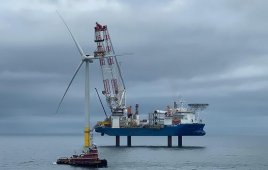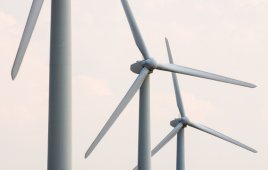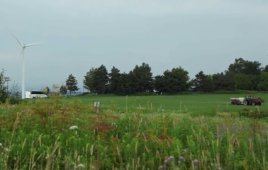 State representative have introduced a bill to the House that would extend the Renewable Energy Tax Credit for four years (until 2016) on wind, hydroelectric, geothermal, bio-energy and municipal solid waste forms of electricity generation. American Wind Energy Association (AWEA) CEO Denise Bode expressed her support of the bipartisan introduction of H.R. 3307, the “American Renewable Energy Production Tax Credit Extension Act.”
State representative have introduced a bill to the House that would extend the Renewable Energy Tax Credit for four years (until 2016) on wind, hydroelectric, geothermal, bio-energy and municipal solid waste forms of electricity generation. American Wind Energy Association (AWEA) CEO Denise Bode expressed her support of the bipartisan introduction of H.R. 3307, the “American Renewable Energy Production Tax Credit Extension Act.”
“I want to thank Representatives Dave Reichert and Earl Blumenauer for their leadership in saving and growing American jobs by sponsoring this important piece of legislation,” Bode says. “This bipartisan support shows that American wind energy jobs are something that we can all agree are vital for our economic wellbeing and energy security. The recent stability of the Production Tax Credit has provided the foundation of wind energy’s transformation of a new manufacturing sector based on American ingenuity: wind has supplied more than a third of all new electric capacity in the U.S. over the past four years. Surveys consistently show that Americans are overwhelmingly in favor of clean wind energy and the Made-in-the-USA jobs that it helps create. Wind energy received 89% public approval in a recent poll.”
H.R. 3307 was created in the Energy Policy Act of 1992 and has frequently been extended in year-end packages of expiring tax provisions, as well as in the Energy Policy Act of 2005. The current incentive is set to expire next year for wind and in 2013 for other renewable energy forms. Advocates note that historically, at least six to eight months before the tax credit expires, financial lenders hesitate in providing capital for projects because of the uncertainty created by the pending expiration of the credit, stalling projects from coming online. The rush to complete projects as the PTC nears expiration also reduces projects and adds costs, resulting in higher electricity prices.
Filed Under: Policy





[…] Read more here Share this:TwitterFacebookEmailPrintLike this:LikeBe the first to like this post. […]